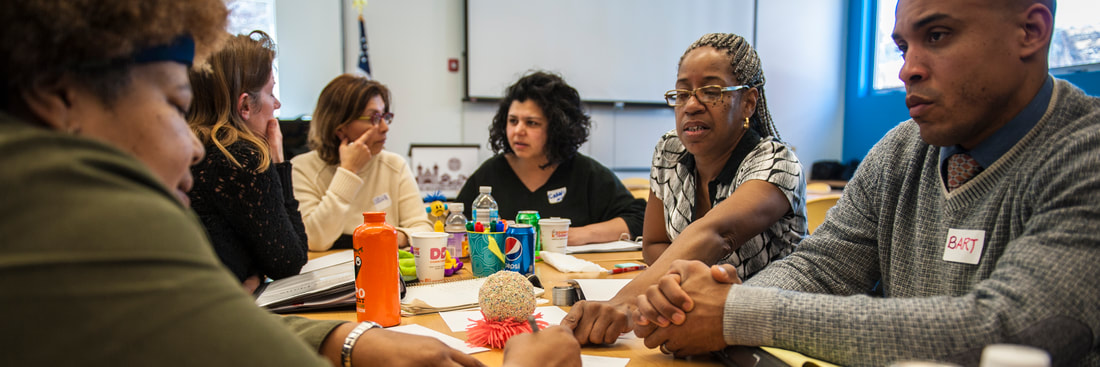|
Darnell Shields dreams of a dynamic, bustling, and alive Austin, a community on the West Side of Chicago. As the Executive Director of Austin Coming Together (ACT), Darnell and his team have worked diligently on building a system that supplies the resources and support that local residents and organizations need to address the barriers they face. The role of community “has to be better acknowledged and valued when it comes to community development initiatives,” he says. “Developing resident capacity on the ground in neighborhoods into interconnected systems is the only way you can have harmonious allocation and distribution of resources in a place.” ACT has had an incredibly successful few years. They recently completed their Quality of Life plan, which aims to “restore Austin and to create something new, building on Austin’s many assets and cultivating new expertise and investment” by “creating deeper relationships and working together in a coordinated way like never before.” The plan is a result of a community planning process that engaged hundreds of people through community forums. The City of Chicago, MacArthur Foundation, and numerous local organizations and residents are all ready to support this community-centered and led plan. ICA connected with Darnell and ACT through the Local Initiative Support Corporation (LISC), which supports lead organizations in communities creating Quality of Life Plans, including ACT. For more than five years, ICA has trained LISC’s community partners how to use our Technology of Participation (ToP) methods to co-create plans with residents. ACT is a network convener that works by bringing residents, organizations, and other stakeholders together in a shared process. “Having the opportunity to take advantage of ICA’s ToP tools was so beneficial for us,” says Darnell. “We have the ability to get everyone on the same page through Consensus Workshops and Focused Conversations. The tools have empowered us to be able to increase our capacity to take on larger collections and better decide who we can leverage, how folks can gain access, and who our work is helping.” The planning process, Darnell says, has created a “culture of relationship-building through our values to where we as a community can come together to collectively design a tool that can inform any and all that we are committed to helping create a thriving Austin community.” Although we are not currently leading any major comprehensive community development projects as ICA has throughout much of its history, our tools, wisdom, and depth understanding of community ownership are still impacting and supporting grassroots development today. Our work depends on a groundswell of individual supporters. If you, like the many people featured in this issue, have been inspired by our work, we ask that you make a contribution.
Comments are closed.
|
|
4750 N Sheridan Rd, Chicago, IL 60640
773 769 6363 x 335 |
Copyright 2022. The Institute of Cultural Affairs. All rights reserved.

